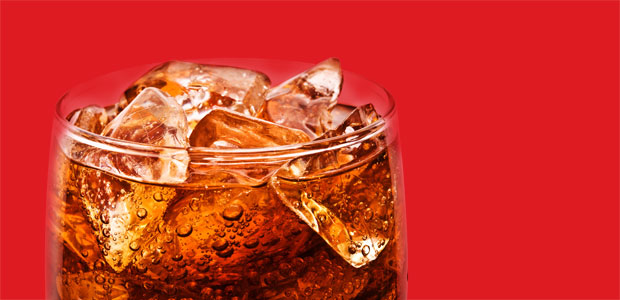Advertisement
The Hard Truth About Soft Drinks
Nothing sweet about them

Is there an upside to soft drinks? The short answer is no. From empty calories to excess sugar to artificial sweeteners, these drinks are nutritional black holes. Even worse are energy drinks that contain extra caffeine and stimulants in the sugary mix.
A four-year study of 6,000 middle-aged men and women by researchers at Boston University School of Medicine, published in 2007, indicates even one daily soft drink may be hazardous to your health. People who drank one or more sodas daily were almost 50 percent more likely to have risk factors for metabolic syndrome. Characterized by obesity, excessive fat around the waist, low levels of good cholesterol, and high blood pressure, metabolic syndrome doubles your chances of heart disease or stroke and can also lead to diabetes.
Even after the researchers adjusted for fat consumption, fibre intake, smoking, and physical activity, soft drink consumers remained at risk. Although the study didn’t prove that soft drinks cause heart disease, strokes, or diabetes, it raised serious red flags, and the study’s authors are calling for further research.
Sugar, Sugar Everywhere
Sugar is a likely culprit for the link to metabolic syndrome. Most soft drink manufacturers use high-fructose corn syrup (HFCS) instead of table sugar. While both sweeteners contain roughly the same proportion of fructose and glucose, HFCS binds these two types of sugars less tightly. The unstable sugars create compounds called carbonyls, which damage cells and tissues and have been linked to the development of diabetes.
Artificial sweeteners such as sucralose, saccharin, and aspartame have also been connected to health concerns. Stevia, a natural herbal sweetener, has been proposed as an HFCS alternative.
More Bad News
Scientists don’t fully understand the reason for the association between soft drinks and metabolic syndrome. They speculate that because soft drinks–whether regular or diet–taste sweet, they may condition your body to prefer sweet things, setting you up to ingest more sugary calories. Also, your body doesn’t recognize liquid calories the same way it does solid ones. Therefore, calories from soft drinks won’t satisfy you the way calories from food would.
Sugar isn’t the only problem. Other chemicals in these drinks, such as phosphoric acid and sodium or potassium benzoate, which are used for colour, flavour, and preservation, may also negatively impact your health. Since many adults and children drink several soft drinks a day, the amount of caffeine can add up, causing insomnia, irritability, rapid heartbeat, and excessive urination in adults, and behavioural and developmental problems in children. Acid in soft drinks erodes tooth enamel, promoting tooth decay. The acid is also a risk factor for nighttime heartburn, a symptom of gastroesophageal reflux disease (GERD).
Some scientists have suggested that the phosphorous in these drinks leaches calcium from bones. However, new research indicates the calcium loss may be due to reduced milk consumption. Children, particularly teenaged girls, who substitute soft drinks for milk may face increased risk for fractures and osteoporosis stemming from inadequate calcium intake.
The Good News
There are plenty of healthy alternatives. Reach for water or nutrient-rich, low-fat milk (or alternatives such as rice, hemp, or soy milks), juice, or herbal tea. Still want the fizz? Mix fruit juice with low-sodium soda water.
Leave soft drinks and energy drinks on the shelves where they belong–not in your body.
Energy Drinks
Marketed to teens and young adults, energy drinks contain large doses of carbohydrates in the form of sugar with additives including caffeine and other legal stimulants, such as guarana and ginseng.
They Can
- increase heart rate and blood pressure
- cause palpitations, nausea, and vomiting
- disturb the body’s electrolyte balance
- increase dehydration
- prevent sleep
When combined with exercise or alcohol, these negative properties are exaggerated, sometimes dangerously so. Because of adverse reactions, Health Canada may extend the Natural Health Products Regulations to cover energy drinks.




